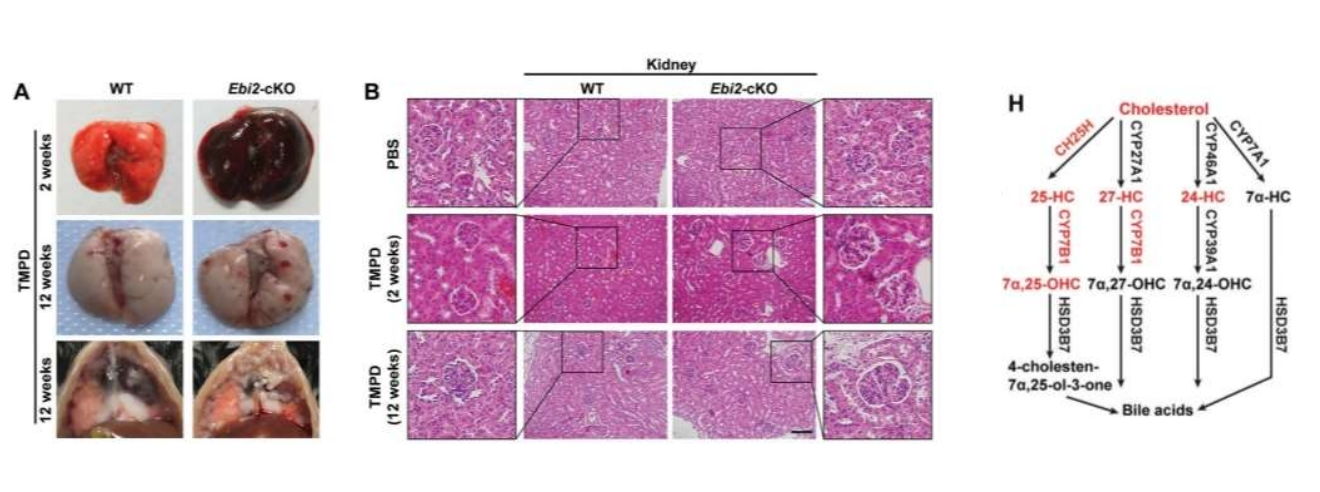
The above panels are the illustrated research titled as “The Oxysterol Receptor EBI2 Links Innate and Adaptive Immunity to Limit IFN Response and Systemic Lupus Erythematosus.” Systemic lupus erythematosus (SLE) is a complex autoimmune disease with abnormal activation of the immune system. Recent attention is increasing about how aberrant lipid and cholesterol metabolism is linked together with type I interferon (IFN-I) signaling in the regulation of the pathogenesis of SLE. Here, a metabonomic analysis is performed and increased plasma concentrations of oxysterols, especially 7a, 25-dihydroxycholesterol (7a, 25-OHC), are identified in SLE patients. we find that 7a, 25-OHC binding to its receptor Epstein–Barr virus-induced gene 2 (EBI2) in macrophages can suppress STAT activation and the production of IFN-b, chemokines, and cytokines. Together, via sensing the oxysterol 7a, 25-OHC, EBI2 in macrophages can modulate innate and adaptive immune responses, which may be used as a potential diagnostic marker and therapeutic target for SLE.